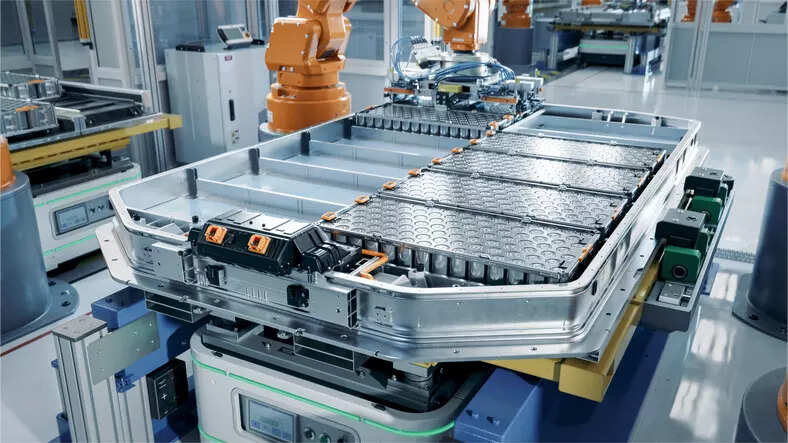[ad_1]

New Delhi: India needs to establish nationally accredited testing facilities for battery energy storage systems to support its target of deploying over 238-gigawatt hours (GWh) of battery storage capacity by 2030, NITI Aayog member Dr. VK Saraswat said. Speaking at FICCI’s Energy Storage Conference 2024, he said the absence of adequate testing and certification infrastructure poses a challenge to the country’s clean energy transition.
“India requires a universal standard for all types of energy storage systems,” Saraswat said, adding that while the Bureau of Indian Standards has developed 17 specifications for energy storage, there are insufficient facilities to ensure compliance. He suggested authorising third-party testing and certification until government-led storage certification agencies are established.
Despite the renewable energy push, coal is projected to maintain a significant role in India’s energy mix, with installed capacity expected to decline from 218 gigawatts (GW) currently to 150 GW by 2047, Saraswat noted. Solar capacity, however, is likely to expand substantially, requiring robust storage integration.
India is considering several storage technologies, including pumped hydro, which has a potential of 100 GW across 60 sites, as well as flow batteries, sodium-sulphur systems, and emerging solutions like aluminium-air batteries, Saraswat said.
Pumped hydro targets revised upward
Central Electricity Authority (CEA) Chairman Ghanshyam Prasad highlighted the need to accelerate pumped hydro storage capacity to 51 GW by 2032, up from the earlier target of 22 GW. He said the revision reflects the need to address evening power demand when solar generation—currently contributing 56 GW to the grid—is unavailable.
Prasad said integrating storage with solar and wind projects and optimizing coal plant operations at technical minimums could help meet the revised targets.
Domestic manufacturing and R&D focus
FICCI Renewable Energy CEOs Committee Chair Shivanand Nimbargi called for enhanced focus on local manufacturing and research and development. “Collaboration between premier institutions like IITs and IISc is essential,” he said, adding that an energy transition levy could fund the creation of dedicated testing facilities and laboratories.
He also called for uniform state policies for pumped storage development and urged the CEA to lead resource mapping and capacity planning.
[ad_2]
Source link



